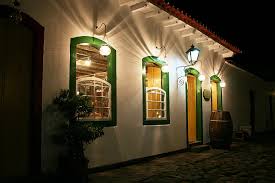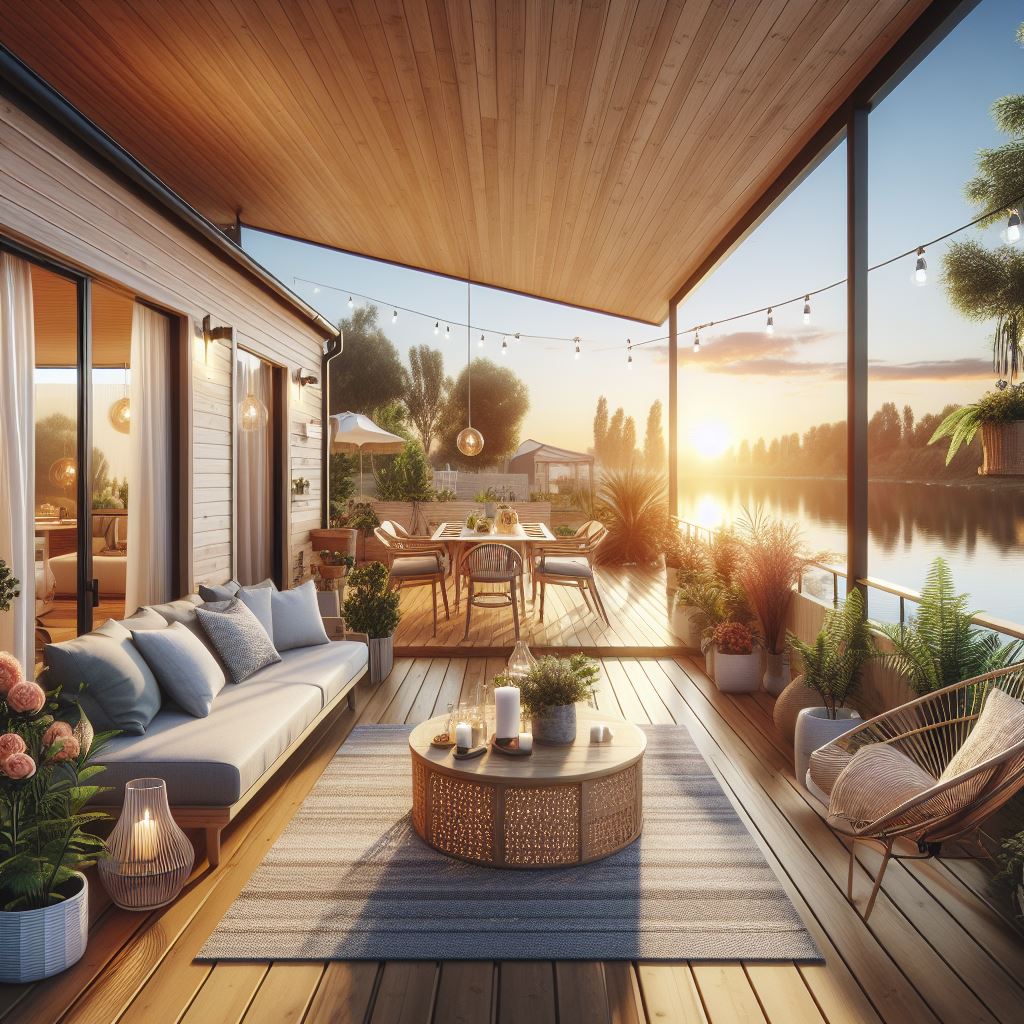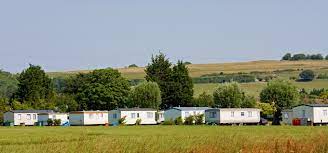
The United States experiences different climates, with harsh winters in the north and a warmer climate in the south. While it is necessary to air condition your mobile home, conventional AC may not cut it. Mobile homes have unique air conditioning requirements due to their construction and size. Mobile homeowners must prioritize space, comfort, and budget when choosing an air conditioning system. This guide covers everything you need about mobile home air conditioners.
Types of Mobile Home Air Conditioning Systems
With the rise in the number of mobile homes in the US, it is essential to establish ways to keep them cool. Here are some types of mobile home air conditioning systems:
- Portable Air Conditioners
These are the simplest types of air conditioners for mobile homes. They are ideal for cooling smaller mobile homes and need no installation.
They are less effective than window air conditioners, generating between 9,000 and 12,000 BTUs. You can get a portable air conditioner for your mobile home for between $300 and $600.
Pros of Portable ACs
- You can move it from one room to another
- They need no installation to operate
- They are cheap
Cons of Portable ACs
- They take up some of your space
- They are not aesthetically pleasing
- They are less efficient and loud
- Window AC Units
We sometimes refer to window air conditioners as through-the-wall AC units. These air conditioners work best for smaller mobile homes in relatively mild climates. They can only cool one room at a time.
Window AC units come in capacities ranging from 5,000 to 18,000 BTUs. The BTU (British Thermal Units) measure how many heat units the conditioner dissipates per hour.
Window AC units cost anywhere between $300 and $800.
Pros of Window AC Units
- They take up a little space.
- They are semi-portable. You can move it from your living room window to your bedroom window when you go to bed.
- They are affordable.
Cons of Window AC Units
- They can only cool one room.
- They are loud and less efficient.
- They are not aesthetically pleasing and may block your view from the window.
- Ductless Mini Splits
Ductless mini splits offer the perfect combination of comfort and value in mobile home air conditioning. They are ideal for mobile homes as they do not require ductwork.
The system includes a condenser unit and one or more indoor air handling units. This system allows you to mount encased blowers in several rooms and power them from the same condenser unit. A single condenser unit can handle up to four blowers.
Ductless mini splits are expensive, costing between $1,500 and $4,500. The total cost depends on the number of air handlers.
Pros of Ductless Mini Splits
- They can cool several rooms simultaneously
- They are efficient and quiet
- The indoor air handlers take up little space in your home. You can mount them on the wall or ceiling.
Cons of Ductless Mini Splits
- They are expensive, especially when you install multiple air handlers
- They may require professional installation, attracting additional cost
- Packaged HVAC Systems

Packaged air conditioning systems are a popular choice for mobile homeowners. These compact AC systems combine the condenser, evaporator, compressor, coils, and air handler in a single unit. The unit is installed outside your mobile home and does not consume your space.
Packaged HVAC units come in various energy configurations, including electric/electric, gas/electric, and heat pumps. You can choose depending on your energy source and availability. A basic packaged HVAC system will cost you between $2,500 and $5,000.
Pros of Packaged HVAC Systems
- They are compact and mounted outside, taking up no interior space.
- They are very efficient and quiet.
- They are reliable.
- They are available in various energy configurations.
Cons of Packaged HVAC Systems
- They are expensive
- They require ductwork
- They need professional installation, which is an extra cost
- Heat Pumps
The popularity of heat pumps has risen considerably recently, following homeowners’ quest for more efficient and eco-friendly HVAC systems. Heat pumps offer the convenience of heating and air conditioning during alternate seasons. They eliminate the need to have two systems in your home.
Air source heat pumps for your mobile home are similar to ductless mini splits. The only difference is that heat pumps require ductwork to deliver conditioned air to your living space.
Heat pump systems can cost between $2,500 and $10,000. The government offers significant rebates and tax credits for air-source heat pumps. The Inflation Reduction Act of 2022 awards homeowners tax credits of up to 30% of a qualified heat pump purchase and installation cost. The High-Efficiency Electric Home Rebate Act (HEEHRA) also offers steep rebates for homeowners who purchase and install heat pumps.
Pros of Heat Pumps
- Very efficient and quiet
- They can provide heat and cool your home, depending on the season
- They are more eco-friendly than other options
Cons of Heat Pumps
- Very high initial cost without considering tax reliefs and rebates
- Requires ductwork
- Requires professional installation
See our complete guide on mobile home HVAC here.
Factors to Consider When Choosing a Mobile Home Air Conditioning System
Before purchasing a mobile home air conditioner, consider the following factors:

- Ductwork availability
While new mobile homes may come with ductwork, older and budget-friendly models may not have any. Ductless air conditioning systems are more suited to mobile homes without ductwork.
- Size and Layout
A single-zone ductless mini split or a window AC is ideal for a small mobile home. For larger mobile homes, consider a packaged unit or a heat pump.
- Insulation
Less efficient insulation in your mobile home demands a more efficient AC system. Older models of mobile homes may need insulation repairs before installing AC.
- Climate
A mobile home in the South may need a higher efficiency AC system than a similar home in the North.
- Zoning capabilities
A ductless mini-split with multiple zones enables you to control the temperature in different rooms.
- Power Source
The type of power you can access will influence your AC choices. Connection to a power grid gives you more options for your mobile home AC.
- Budget
Although portable and window ACs may come at low initial costs, you may end up paying more in utility bills. More efficient mobile home AC options may offer you comfort and better savings on energy costs.
- Installation
Consider a system that requires minimal house modifications to install and run.
Your Guide for Mobile Home AC Sizing
Estimating the adequate AC size for your mobile home cooling needs involves a few simple steps:
- Calculate the floor area of your home in square feet.
- Estimate the basic BTU requirement by multiplying the floor area by 20 BTU per square foot.
- Adjust the BTU requirement for a high ceiling. BTU requirement increases by 10% for each foot after 8 feet.
- Adjust for sun exposure; if your mobile home receives a lot of direct sunlight, increase the BTU requirement by 10%. Conversely, if it is mostly under a shade, reduce it by 10%.
- Adjust for regular occupants. Add 600 BTU for each additional regular occupant.
- If the system covers the kitchen, add 4,000 BTU to the total.
The total BTU requirement will give you an idea of the ideal type and size of AC system for your mobile home.
Conclusion
Installing a mobile home air conditioner requires careful planning, preparation, and execution. By assessing your cooling needs, choosing the right type of air conditioner, and following proper installation procedures, you can ensure optimal comfort and efficiency in your mobile home.
Remember to prioritize regular maintenance to prolong the lifespan of your air conditioning system and enjoy reliable cooling.



